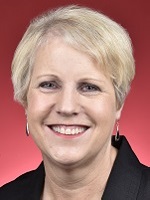
senator Catryna Bilyk Contact information
Here you will find contact information for senator Catryna Bilyk, including email address, phone number, and mailing address.
| Name | Catryna Bilyk |
| Position | senator |
| State | australia representatives tasmania |
| Party | Australian Labor Party |
| Born | 7-2-1959 |
| fax 1 | (03) 6229 4100 |
| Email Form | |
| Website | Official Website |
senator Catryna Bilyk
Catryna Louise Bilyk is an Australian politician and a member of the Australian Labor Party (ALP) who has been a Senator for Tasmania since 2008. Before her entry into politics, Bilyk worked as an industrial officer for the Australian Services Union, a researcher for psychiatric pioneer Eric Cunningham Dax, an early childhood educator, and an advisor to Tasmanian Labor Ministers David Crean, Ken Bacon, and David Llewellyn.
Bilyk was first preselected in third spot on the Labor Senate ticket in Tasmania at the 2001 federal election but failed to win a seat. However, she was elected to serve a six-year term in the Senate at the 2007 federal election, after being placed in the third position on the Australian Labor Party’s Tasmanian ticket. She was elected to the sixth Senate seat for Tasmania, on preferences distributed from Andrew Wilkie, the Australian Greens’ second candidate for the Senate in Tasmania in the 2007 election.
In February 2016, Bilyk announced her support for same-sex marriage, having previously opposed it. In March 2008, as a senator-elect, Bilyk was diagnosed with two benign brain tumors, which were surgically removed. Her experience with brain tumors motivated her to raise funds for research to improve the survival rate for cancer. To date, events she has organized have raised over $120,000 for Cure Brain Cancer Foundation.
On December 6, 2016, Bilyk was appointed chair of a newly-formed Senate Select Committee into funding for research into cancers with low survival rates. The Committee has been tasked with inquiring into and reporting on “the impact of health research funding models on the availability of funding for research into cancers with low survival rates.”